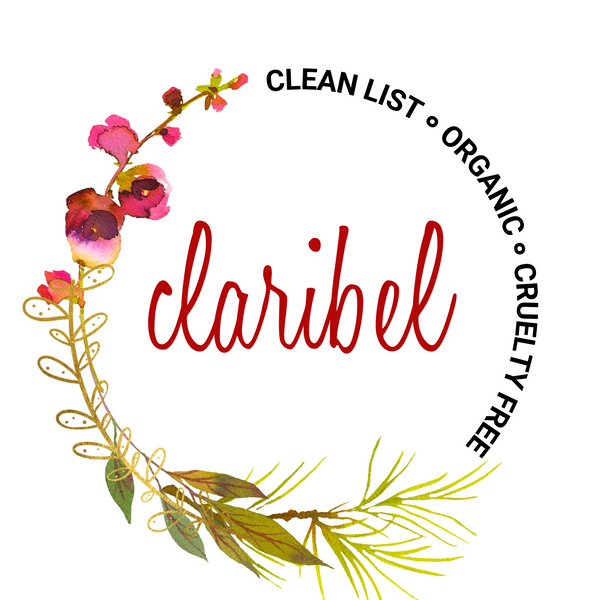
Jojoba Oil for Skin Care: Is it Really the Perfect Oil for All Skin Types?
There are so many benefits of jojoba oil for skin (which you'll read more about below). Not only is it beneficial - It feels good, smells, good, is affordable, and solves many problems.
Jojoba oil's versatility is second to none when we’re talking about skin care ingredients. And you may be thinking “Well that’s fine, but it’s an oil, it’s not really all that effective of an ingredient”. The reality is, it is super effective and can literally change the feel and look of your skin with its healing qualities.
Our Vitamin C Antioxidant Facial Oil includes jojoba oil and so many other skin loving ingredients for radiant, healthier skin.
Where Exactly Does Jojoba Oil Come From?
Jojoba oil is derived from the seeds of the jojoba shrub, a perennial native to the North American deserts. The oil accounts for 50% of the jojoba seed and is extracted by cold-pressing, a process that helps maintain the rich nutritional value of the oil.
Similar to other skincare oils, jojoba oil contains a lot of vitamins, antioxidants, and anti-inflammatory properties, but what sets it apart from the others is that it’s technically not an oil, but a wax ester.
What does this mean for your skin? Jojoba oil has a similar molecular structure and composition to sebum, which the skin naturally produces for moisturization.
A Little Jojoba Oil History
Jojoba (Simmodsia chinensis (Link) Schneider) is a perennial woody shrub native to the semiarid regions of southern Arizona, southern California and northwestern Mexico. Jojoba (pronounced ho-HO-ba) is being cultivated to provide a renewable source of a unique high-quality oil.
Native Americans extracted the oil from jojoba seeds to treat sores and wounds centuries ago. Collection and processing of seed from naturally occurring stands in the early 1970s marked the beginning of jojoba domestication. In addition, the ban on the importation of sperm whale products in 1971 led to the discovery that jojoba oil is in many regards superior to sperm oil for applications in the cosmetics and other industries.
Today, 40,000 acres of jojoba are under cultivation in the southwestern U.S. Much of the interest in jojoba worldwide is the result of the plant's ability to survive in a harsh desert environment. The utilization of marginal land that will not support more conventional agricultural crops could become a major asset to the global agricultural economy.
The oldest commercial jojoba plantings in the U.S. were established in the late 1970s, and present production of jojoba oil is in the range of thousands of tons per year. The major world producers are the United States and Mexico, with considerable quantities of oil being exported to Japan and Europe.
Jojoba Oil for Skin Care (and Hair): 10 Benefits
Improve the skin barrier. Jojoba oil is loaded with antioxidants, such as vitamins A and E, and omega-6 fatty acids, which are essential components of the skin’s barrier. It also acts as a humectant, meaning it works to retain moisture in the skin. This protective layer, combined with the anti-inflammatory effects of the vitamin E, gives skin the breather necessary to focus on the healing process. This can be especially beneficial to those with eczema and psoriasis. Add a drop or two of jojoba oil to these trouble spots, once to twice daily, should help turn things around.
Soothe dry skin. Similar to other oils, jojoba oil is great for soothing dry, irritated skin (or preventing it from cropping up in the first place). Its anti-inflammatory benefits help calm the complexion, while providing the hydration it needs to restore itself. And because it’s a humectant, it forms a protective seal over the skin to prevent future moisture loss.
Use a few drops of jojoba oil straight-up after cleansing, or mix it into your go-to moisturizer to amp up its effectiveness and super-hydrate your skin.
Our antioxidant serum for face contains jojoba oil along with an impressive list of ingredients you'll love.
Treat acne. Jojoba oil’s chemical composition allows it to mimic the skin’s sebum, therefore it balances out the skin by not overproducing oil in areas of the skin where it’s not needed. It also contains antimicrobial properties that can ward off certain types of bacteria, making it an excellent choice for acne-prone skin.
You can either swipe a few drops over your face with a cotton round—after cleansing and toner, but before any heavier creams and lotions—or use it as a carrier oil for other acne-fighters, such as tea tree oil.
Delay signs of aging. Jojoba oil is naturally rich in vitamin E, a potent antioxidant that helps the skin defend itself against free radicals that can cause premature aging and skin damage. It’s also rich in amino acids, which are the building blocks of collagen. The result? A reduction in the appearance of fine lines and wrinkles, and improvements in skin texture, tone, and elasticity.
To score these anti-aging perks, you can apply a few drops of jojoba oil to freshly cleansed skin, or you can use it to boost the efficacy of your go-to anti-aging products. It’s super-lightweight, making it the perfect carrier oil for treatment products and actives which are otherwise unable to penetrate the deep layers of the skin.
Fight cold sores. There are several essential oils, such as tea tree and peppermint, which are known to help lessen the severity of a cold sore, even help ward one off. But these oils need to be diluted by a carrier oil so they don’t irritate the skin, and that’s where jojoba oil comes in.
Jojoba oil happens to contain docosanol (the active ingredient in OTC cold sore creams), which does its thing by inhibiting the virus from getting to healthy skin cells—and may be the one-two punch needed to show your cold sore who’s boss. Simply dab the diluted tea tree (or peppermint) oil onto your cold sore with a clean cotton swab.
Remove makeup. Jojoba oil makes for a great makeup remover, as it’s lightweight and non-greasy. Plus, it gets all of your makeup off without tugging at the skin. Massage a few drops onto your face, and let it sit for about a minute. Wet a soft washcloth with warm water and gently wipe your makeup off, leaving your eye makeup until last so the oil has more time to do its thing. Lightly pat your skin dry, then continue on with your skincare routine.
Condition hair. Remember, jojoba oil molecules are similar to sebum, which naturally coats your hair with oil. Applying it to your scalp and hair can hydrate individual hair strands and help lock in moisture, leaving your hair feeling soft and healthy. And because it’s super-lightweight, people with thin or fine hair can use it to hydrate their strands sans the heaviness of regular conditioners.
You can add a few drops of jojoba oil to your go-to conditioner, apply the oil directly to strands post-shampoo and pre-styling—and if your hair’s Sahara-dry, you can also slather it on for a few hours (or overnight) for a deep-conditioning effect.
Ditch dandruff. Jojoba oil naturally contains palmitic acid and stearic acid, both of which are known for conditioning and protecting the hair, says Dr. Green. When massaged onto the scalp, the added hydration can help prevent dandruff or an itchy scalp—and because jojoba oil is skilled at balancing out the skin, ongoing use may also keep those pesky flakes from returning.
Depending on the severity of your dandruff, you could use jojoba oil as a pre-treatment before shampooing (say, letting it sit for 20 minutes before rinsing), or as a leave-in scalp conditioner post-shampoo.
Protect against damage. The fatty acids in jojoba oil not only condition the hair, but protect it from styling tool-induced heat damage. And remember those potent antioxidants? They defend your hair against free radicals the same way they do your skin. For those with color-treated hair, adding jojoba oil to your repertoire can help extend the length of your color too. To score these protective benefits, run a drop of two of jojoba oil through your hair before and after styling.
Promote hair thickness and growth. The vitamins and minerals found in jojoba oil (vitamins B and C, zinc, copper) provide nourishment to the hair and help keep it thick and growing. The zinc that’s found in jojoba oil, for example, is vital for the tissue in the hair to grow. It helps the follicles grow and maintains the functionality of the surrounding oil glands.
It’s also excellent for strengthening the hair, and also notable that anyone suffering from hair loss can apply a few drops to their scalp as a regular leave-in treatment. This will help moisturize the follicles to prevent dryness, which can lead to hair falling out.
3 Tips on How to Use it to Benefit You the Most
Incorporate into Your Makeup Removal Routine. Why splash out on a separate makeup remover or oil cleanser, when this all-natural ingredient can dissolve and whisk away everything from sunscreen to waterproof mascara? Because oil dissolves oil, it can be used to bind to and remove makeup.
Layer With SPF. Jojoba has natural ways of protecting itself from sun damage. Jojoba is the only plant in the world known to produce pure liquid wax esters. It layers these long molecules in the outer layer of its leaves to stop UVB rays from penetrating its leaves. The good bit? It may do the same for your skin.
Smooth Out Frizzy Hair. Add a few drops of jojoba to your leave-in moisturizer or heat protectant to knock back fluffiness and frizz.
Our antioxidant serum for face contains jojoba oil along with an impressive list of ingredients you'll love:
Conclusion
There are so many reasons to love jojoba oil, that everyone regardless of your skin type, can greatly benefit from this skin enhancing ingredient.

